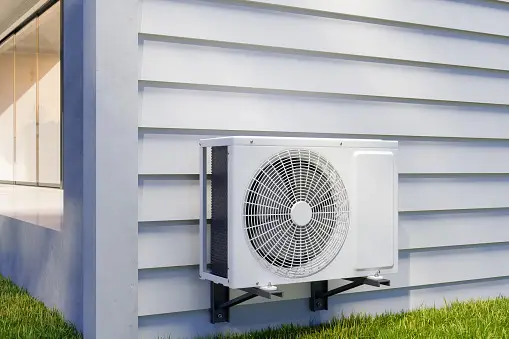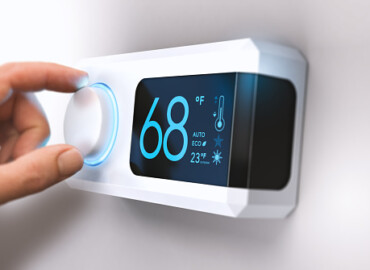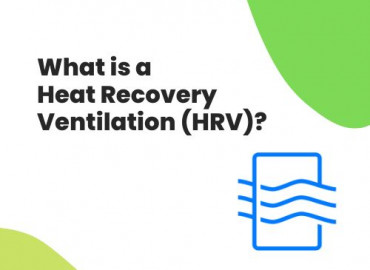Signs of a Bad AC Compressor: Symptoms and Solutions
When your home’s cool comfort is compromised, the culprit may often lie within the heart of your air conditioning system—the AC compressor. This critical component is responsible for transforming power into cool, refreshing energy, a process pivotal to your air conditioning’s capacity to regulate the climate of your surroundings effectively. Recognizing the signs of a bad AC compressor is not just important for ensuring comfortable living spaces but also for maintaining the overall efficiency and performance of your AC unit. Incidents like reduced airflow, peculiar noises, or suspected leaks may all point towards a potential compressor malfunction, signaling that timely action must be taken to address the issue.
In this article, we delve deep into the signs of a bad AC compressor, exploring the complex role of your air conditioning compressor and identifying the symptoms that could indicate it is not working optimally. We will equip you with the tools to troubleshoot common AC compressor problems and provide practical DIY fixes for minor issues. Moreover, this discussion will pinpoint when the expertise of a professional is paramount. Additionally, we’ll offer proactive measures to help extend the lifespan of your AC compressor while upholding its efficiency. Your home’s comfort hinges on the health of your AC system, and understanding how to check your AC compressor, with preventative maintenance being key, is the cornerstone of enduring coolness and tranquility.
Understanding the AC Compressor
At the core of your air conditioning system lies the AC compressor, often referred to as the heart of the unit. Understanding its function and maintenance is crucial for preventing the signs of a bad AC compressor from disrupting your comfort. Here’s what you need to know:
The Role of the AC Compressor
- Conversion of Refrigerant: Your AC compressor is tasked with converting refrigerant gas into liquid form. During this process, if the compressor fails, it can send debris throughout the system, potentially leading to expensive repairs.
- Heat Transfer: It works by raising the temperature and pressure of the refrigerant vapor. This is essential for the heat transfer process, where heat from the refrigerant is released to the outside air in the condenser coils. Understanding how this process works can help you identify when something isn’t functioning correctly.
Types of AC Compressors
- Reciprocating Compressors: These compressors operate with suction and discharge valves that open and close based on pressure differences, allowing the vapor refrigerant to enter and exit the compression chamber at the right times.
- Rotary Compressors: With a cylindrical shape, rotary compressors have a roller connected directly to the motor shaft, compressing refrigerant vapor as it rotates.
- Scroll Compressors: These use two spirals, one stationary and one that moves, to push and compress refrigerant vapor toward the center, and are commonly found in modern air conditioners.
Maintenance and Longevity
- Location: The compressor is housed within the outdoor unit, the condenser, and acts as the intermediary between the indoor evaporator coil and the outdoor condenser coil.
- Regular Maintenance: Changing the air filter and ensuring the correct amount of refrigerant is crucial to prevent damage to the compressor.
- Lifespan: With proper servicing, which should be done annually, a compressor can last for about 10 to 15 years. Keeping the outdoor unit clear of leaves and debris is also essential for prolonging your compressor’s life.
By recognizing the importance of the air conditioning compressor and staying on top of maintenance, you can avoid many of the bad AC compressor symptoms and ensure your system runs smoothly for years to come.
Recognizing the Symptoms of a Failing AC Compressor
Recognizing the early signs of a bad AC compressor is essential to avoid a complete system failure. Here are the symptoms you should be alert for:
- Unusual Noises: If your AC unit starts making loud noises such as grinding, popping, or screeching, it could be an indication of electrical issues or a loose compressor or fan in the housing. In some cases, these sounds may signal a worn or damaged bearing, potentially necessitating a compressor replacement.
- Ineffective Cooling: When the air conditioning compressor fails to circulate refrigerant properly, you may notice warm air from the vents or reduced airflow. This could be due to a variety of issues, including a locked rotor, high head pressure, internal overload, or simply being low on refrigerant.
- Physical Signs of Damage: Leaks are a telltale sign of compressor trouble. Refrigerant fluid leaking can cause significant damage to the AC system and is a symptom of compressor failure. Additionally, if the compressor clutch or belt is seized, it may prevent the compressor from starting or cause it to stay on continuously, which requires immediate attention.
- Electrical and Mechanical Failures: A failing compressor can draw too much power, leading to a tripped circuit breaker. Furthermore, if your compressor is aging, it may struggle to start or cause short outs in the circuit breaker, indicating that it might be more cost-effective to invest in a new air conditioning system rather than face a costly repair.
- Increased Energy Bills: A sudden spike in your electricity bills without an increase in usage can suggest that your compressor is overworking. This inefficiency is often a sign that the compressor is struggling to maintain the desired temperature, thus using more energy.
- Trouble with System Start-Up: If your air conditioner is not turning on, or the unit vibrates upon starting, it could be a sign that the compressor is close to failing. Before jumping to conclusions, always check the circuit breaker box first. However, if the compressor is indeed the issue, it may be time to consider a replacement.
By staying vigilant and responding to these bad AC compressor symptoms, you can ensure your air conditioning compressor remains in good working condition. Remember, addressing issues early can save you from more significant problems down the line. If you encounter any of these symptoms, it’s crucial to take action promptly to maintain the comfort and efficiency of your living space.
Troubleshooting Common AC Compressor Issues
Troubleshooting common issues with your air conditioning compressor can often be a straightforward process, provided you follow a systematic approach. Here’s how to check your AC compressor and address some of the signs of a bad AC compressor:
- Listening for Unusual Noises and Checking Airflow:
- Pay attention to any strange sounds coming from your AC unit, such as grinding or screeching, which could indicate mechanical failures.
- Verify if there is cool air coming from the vents. A lack of cool air could signify a problem with refrigerant circulation.
- Capacitor Testing:
- If the compressor isn’t starting, use a multimeter to test the capacitor’s resistance. A capacitor with resistance levels below the recommended value could be the culprit and should be replaced, as demonstrated in this step-by-step guide.
- Power Supply Issues:
- Ensure the system is receiving adequate power by resetting the breaker: switch it off and then back on again. This simple step can sometimes resolve power issues, as outlined in this AC repair guide.
- Before performing any repairs, always turn off the power supply to the HVAC system to ensure safety.
- Wiring Inspection:
- Tighten any loose connections and replace damaged wires or connectors to prevent electrical failures that can lead to compressor issues.
- Start Capacitor and Electrical Checks:
- Test the start capacitor with a multimeter and replace it if found to be defective.
- For a suspected short to ground, check for continuity between load side terminals and the ground. Discontinuity could indicate a serious electrical issue.
- Compressor Resistance Testing:
- Measure the resistance between the Common and Start, Common and Run, and Start and Run terminals of the compressor. Abnormal resistance readings could signal internal problems.
- Circuit Breaker and Fuse Assessment:
- If the breaker at the main panel is tripped, attempt to reset it. Should it trip immediately, there’s likely an electrical short to ground, a situation requiring professional intervention.
- Check the fuses at the disconnect for continuity and replace any that are open to restore proper function.
- Voltage Measurement:
- Measure the line voltage at the contactor’s load side. If the voltage is low, inspect the wiring and connections for issues that may affect power delivery to the compressor.
By following these steps, you can diagnose and potentially resolve some of the bad ac compressor symptoms, ensuring your air conditioning compressor is functioning correctly. Remember, safety is paramount, so always turn off the power before attempting any repairs, and do not hesitate to seek professional help if you’re unsure about any part of the process.
DIY Fixes for Minor AC Compressor Problems
When facing minor issues with your air conditioning compressor, there are several DIY fixes you can undertake to mitigate the signs of a bad AC compressor. Here’s how you can address some of these problems:
Checking the Refrigerant Level
- Inspect Refrigerant: Determine if your AC system has the correct refrigerant level. An insufficient amount can cause your compressor to overheat and fail.
- Recharge if Necessary: If levels are low, you may need to recharge your AC system with the appropriate type of refrigerant. This can help restore efficient cooling and prevent compressor damage.
Inspecting Electrical Components
- Compressor Clutch Relay: Check the compressor clutch relay for proper operation. This component engages the compressor; if it’s faulty, the compressor won’t turn on.
- Compressor Clutch Continuity: Use a multimeter to test for continuity in the compressor clutch. If there is no continuity, the clutch may need to be replaced to get your air conditioning compressor back to working order.
Regular Maintenance Tasks
- Clean the Condenser Coils: Dirt and debris can insulate the coils and prevent proper heat dissipation, causing the compressor to work harder.
- Use a soft brush or vacuum cleaner to gently clean the condenser coils, ensuring they’re free of obstructions.
- Replace the Air Filter: A clogged air filter restricts airflow, leading to increased strain on the compressor.
- Make it a habit to replace the air filter every few months to maintain airflow and compressor efficiency.
Pre-Repair Safety Checks
- Ensure Proper Operation: Before starting any repairs, make sure your air conditioner is capable of turning on and is operating normally.
- Circuit Breaker: Check your circuit breaker box switches to ensure they are in the correct position and functioning properly.
Compressor Replacement Steps
- Drain Refrigerant: Before removing the compressor, carefully drain all of the refrigerant to prevent system damage.
- Clean the System: Once the compressor is removed, clean the AC unit thoroughly to eliminate any foreign substances that could harm the new compressor.
- Install New Components: After cleaning, install the new compressor, receiver drier, and other components as necessary. It’s crucial to ensure all connections are secure and free of leaks.
By following these steps, you can address some of the bad AC compressor symptoms and ensure your AC compressor not working properly is promptly dealt with. Remember, regular maintenance is key to preventing these issues from arising in the first place. If you’re ever in doubt about how to check AC compressor or handle refrigerant, it’s always best to seek professional help to avoid injury or further damage to your AC system.
When to Seek Professional Help
In navigating the complexities of air conditioning maintenance, there are certain scenarios where the expertise of a professional is not just recommended, it’s necessary. Here are instances when you should seek professional help for your AC unit:
- Compressor Replacement:
- If your AC compressor fails, it typically necessitates a replacement rather than a repair. This is a complex job that should be handled by a professional to ensure it’s done correctly.
- It’s also advised to replace the receiver drier or accumulator and the expansion valve or orifice tube when installing a new compressor. These components are critical for the proper function and longevity of your air conditioning compressor.
- Addressing underlying issues within the AC system during compressor replacement is essential to prevent the need for frequent replacements.
- System Refuses to Turn On:
- If your AC won’t start, the problem could be due to various issues such as a tripped circuit breaker, clogged filter, or a faulty motor. A professional can accurately diagnose and resolve the issue.
- A malfunctioning thermostat or a refrigerant leak are also possible culprits that require a professional’s attention. Don’t hesitate to schedule a professional visit to determine the cause.
- Inconsistent Airflow and Temperature Control:
- Decreased airflow or significant temperature differences across rooms can indicate problems with the air ducts or compressors. These issues are best resolved by a professional to ensure your unit’s efficiency is restored.
- The presence of unusual sounds or odors, when the unit is running, could point to serious issues like burnt wires or mold in the ductwork, which must be addressed by an expert.
- Leaks and Thermostat Issues:
- Any form of leakage, whether water or refrigerant, signals a problem that could range from a simple tube replacement to fixing compromised lines. A professional should handle these repairs to avoid further damage.
- Thermostat problems, such as incorrect readings or wiring issues, can affect your entire system’s performance and should be diagnosed and resolved by an AC expert.
- Unexpected Increase in Energy Bills:
- An unexplained rise in your electricity bills could indicate that your AC unit is overworking. A professional can identify the cause and provide the necessary servicing to correct the issue.
- Regular Maintenance and Annual Evaluations:
- To prevent major damages and extend the lifespan of your AC unit, regular professional maintenance is crucial. Experts can catch and fix emerging issues before they escalate.
- An annual check-up by a professional should include an evaluation of electrical connections, coolant levels, and mechanical parts to ensure everything is in working order. This preemptive step can save you from costly repairs in the future.
Remember, while some minor issues can be addressed with DIY solutions, the signs of a bad ac compressor often point to complex problems that require professional intervention. Trusting a qualified technician ensures that your ac compressor not working is effectively and safely resolved, maintaining the comfort and efficiency of your home.
Preventive Measures to Extend AC Compressor Life
To ensure your air conditioning compressor operates at peak efficiency for as long as possible, consider the following preventive measures:
- Regular Professional Inspections: Just like any high-functioning system, your AC compressor benefits greatly from regular check-ups, which can extend its life significantly, often beyond 12 years. During these inspections, a professional will check the wiring and other components for signs of wear and tear, helping to prevent unexpected failures. Schedule regular inspections to keep your system running smoothly.
- Voltage Monitor Installation: Power surges can be detrimental to your AC compressor. Installing a voltage monitor or surge protector can safeguard your system against these sudden spikes, preventing electrical failures that may lead to compressor damage. This is a simple yet effective step in protecting the heart of your air conditioning system. Protect your system from electrical mishaps with the right equipment.
- Outdoor Unit Maintenance: The outdoor unit of your AC system can accumulate dirt and debris, which can cause the compressor to work harder than necessary, leading to potential issues. Regular cleaning of the outdoor unit is essential to prevent this build-up and maintain the efficiency of your compressor. Keep your outdoor unit clean to avoid unnecessary strain on your compressor.
- Suction Line Care: The suction lines play a crucial role in maintaining proper refrigerant flow. Keeping these lines clean and clear of blockages is crucial to prevent overheating and ensure your compressor doesn’t work overtime. Ensure proper refrigerant flow with clean suction lines.
- Lubrication is Key: Regular lubrication of the AC system’s moving parts, as recommended by professionals, will keep the compressor running smoothly. This can prevent many common issues and is a simple step that can be done during routine maintenance. Maintain compressor health with proper lubrication.
- AC Coil Cleaning: The coils in your AC system play a direct role in heat transfer. Frequent cleaning of these coils is necessary to ensure they operate efficiently, which in turn prevents the compressor from overworking and potentially burning out. Ensure efficient heat transfer with clean AC coils.
- Invest in Preventive Maintenance Plans: Regular maintenance can help you avoid costly repairs down the line. Preventive maintenance plans are an excellent way to keep your system in check and can save you money by maintaining your AC system’s efficiency and preventing compressor failure. Avoid compressor failure with a solid maintenance plan.
Remember, if you suspect your compressor is malfunctioning, it’s crucial to have a professional AC technician inspect and diagnose the issue to ensure proper repair. Attempting to fix a broken compressor without the necessary expertise can lead to further damage and even more costly repairs. Always seek professional help for compressor issues to get your system back up and running efficiently.
Conclusion
Throughout our exploration of the common signs and solutions for a failing AC compressor, we’ve underscored the significance of timely identification and intervention for maintaining the efficiency and longevity of your air conditioning unit. By heeding the clear signals—unusual noises, ineffective cooling, or increased energy bills, among others—you empower yourself to avoid the escalation of minor issues into costly repairs. Inherent in this proactive stance is the recognition of when to apply DIY fixes and when to solicit the expertise of skilled professionals, ensuring that your living space remains the haven of comfort it was meant to be.
In conclusion, the health of your AC compressor directly influences your home’s climate control, and through regular maintenance and a keen awareness of the signs of trouble, you can effectively circumvent major disruptions. Should you face persistent issues or require expert assessment, never hesitate to seek out professional services that can restore your air conditioner’s performance to its optimal state. Extend the life of your AC compressor and guarantee your comfort by staying ahead of potential problems and scheduling a thorough compressor evaluation when in doubt.




